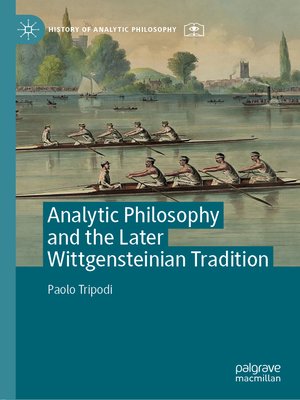Analytic Philosophy and the Later Wittgensteinian Tradition
ebook ∣ History of Analytic Philosophy
By Paolo Tripodi

Sign up to save your library
With an OverDrive account, you can save your favorite libraries for at-a-glance information about availability. Find out more about OverDrive accounts.
Find this title in Libby, the library reading app by OverDrive.



Search for a digital library with this title
Title found at these libraries:
| Loading... |
This book aims to explain the decline of the later Wittgensteinian tradition in analytic philosophy during the second half of the twentieth century. Throughout the 1950s, Oxford was the center of analytic philosophy and Wittgenstein – the later Wittgenstein – the most influential contemporary thinker within that philosophical tradition. Wittgenstein's methods and ideas were widely accepted, with everything seeming to point to the Wittgensteinian paradigm having a similar impact on the philosophical scenes of all English speaking countries. However, this was not to be the case. By the 1980s, albeit still important, Wittgenstein was considered as a somewhat marginal thinker. What occurred within the history of analytic philosophy to produce such a decline?
This book expertly traces the early reception of Wittgenstein in the United States, the shift in the humanities to a tradition rooted in the natural sciences, and the economic crisis of the mid-1970s, to revealthe factors that contributed to the eventual hostility towards the later Wittgensteinian tradition.






